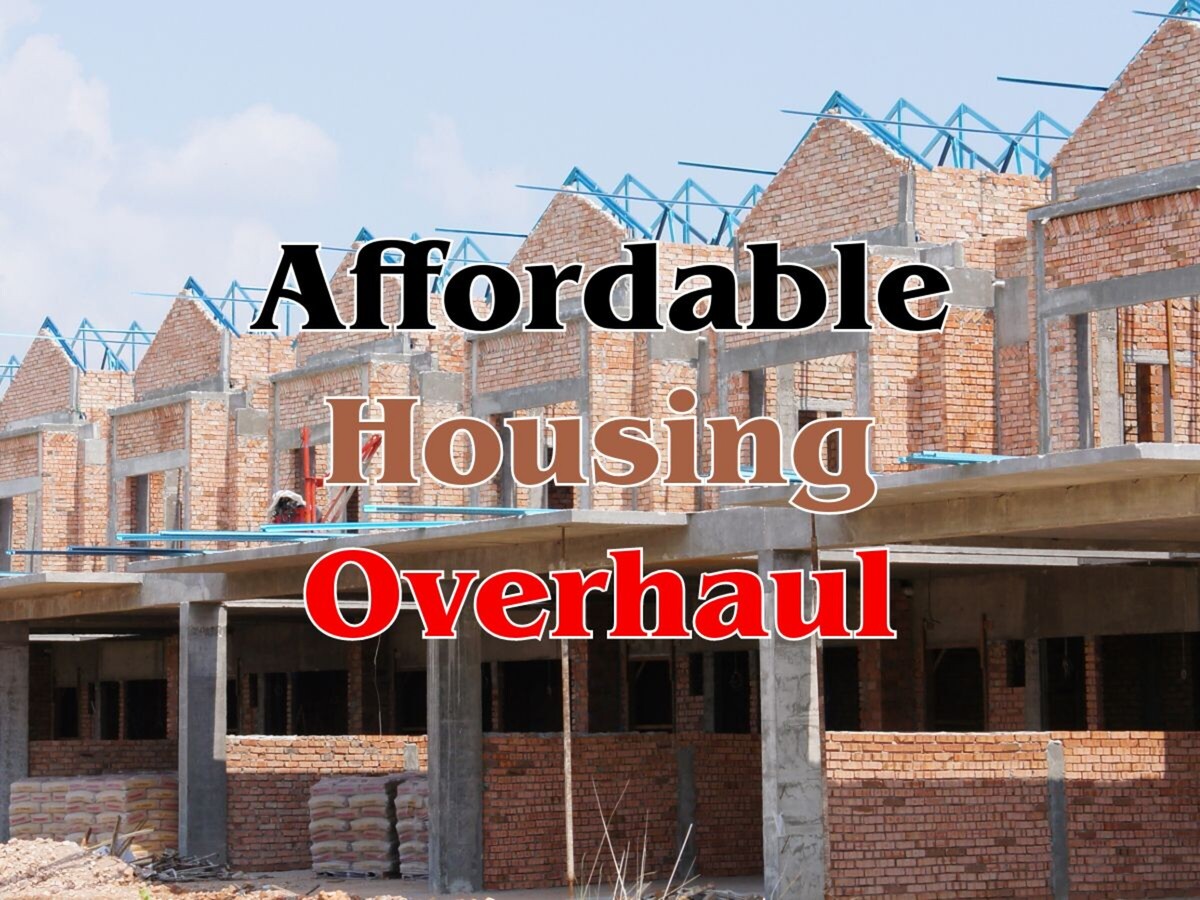Image


NEW JERSEY STATE – The New Jersey Senate Community and Urban Affairs Committee's amendment to Senate Bill No. 50, alongside its counterpart in the Assembly, Bill No. 4, has ignited a statewide discussion on the future of affordable housing. Dated January 25, 2024, the proposed legislation aims to overhaul the Fair Housing Act by abolishing the Council on Affordable Housing (COAH) and introducing a new framework for municipalities to determine their affordable housing obligations. This shift towards local determination and the methodologies for calculating obligations have sparked concerns from various municipalities, including right here in Morris County, over the potential impact on community planning and litigation risks.
The "Fair Housing Act" established COAH to oversee the development of affordable housing across New Jersey. Senate Bill No. 50 seeks to abolish this body and grant municipalities the ability to calculate their own affordable housing quotas using formulas provided by the Department of Community Affairs (DCA). The legislation claims this process would offer municipalities more autonomy in meeting the housing needs of their residents.
Additionally, municipalities would be granted the ability to adjust the DCA's calculations provided they adhere to the bill's methodologies. Municipalities must solidify their commitments through a binding resolution by January 31, 2025, to shield themselves from builder’s remedy lawsuits as the fourth round of housing obligations commences.
The legislation introduces the "Affordable Housing Dispute Resolution Program," aimed at mediating disagreements over municipal housing plans. It sets strict deadlines for municipalities to submit their plans and amend relevant ordinances. Failure to comply could result in losing immunity from builder’s remedy litigation, although extensions may be granted.
The bill mandates the Administrative Director of the Courts to appoint leaders for the dispute resolution program, preferably retired judges or experts in the field. Additionally, it delegates the DCA the task of calculating municipal obligations, incorporating factors such as nonresidential valuation and land capacity.
Municipalities can seek adjustments to their obligations based on land availability and are permitted to reduce their quotas under certain conditions. The legislation also outlines acceptable uses for affordable housing trust fund monies and sets ethical standards for individuals involved in administering the housing program.
Municipalities across the state of express their concern with the legislation, NJ A50, calling residents to contact their representatives.
The Township of East Hanover has voiced its opposition to the bill, describing it as imposing "unrealistic obligations with unrealistic deadlines" based on "onerous standards." With the NJ Assembly Appropriations Committee set to discuss the bill on February 8, 2024, East Hanover urges residents to express their opinions to state legislators.
The Borough of Madison provides a detailed critique, emphasizing the bill's departure from the four-decade-old framework for managing affordable housing in New Jersey - albeit a broken framework. The Town of Madison centers its complaints on claims of weakened municipal immunity from zoning lawsuits, potential changes to accepted affordable housing numbers post-acceptance, and a shift in affordable housing accountability from developers to municipalities. Madison detailed critique also raises alarms over increased litigation costs and "reliance on an untested formula" for determining housing quotas.
Many municipalities claim an "expedited legislative process" for this bill is a concern, advocating for a more careful and deliberate approach to reforming the state's affordable housing framework. The urgency with which the bill is being pushed through has prompted calls for residents to engage with their state representatives, seeking amendments that address the outlined hardships.
The proposed legislation aims to address the longstanding issues stemming from COAH's inactivity and the judicial handling of affordable housing matters. However, the suggested approach has clearly clashed with the sentiments of many of NJs 564 municipalities.
As Senate Bill No. 50 and Assembly Bill No. 4 continue to move through the legislative process, the dialogue between state lawmakers, municipalities, and residents will be crucial in shaping the future of affordable housing in New Jersey. The outcome of this legislative effort will likely have significant implications for how communities across the state approach the challenge of providing affordable housing while balancing developmental and environmental considerations.